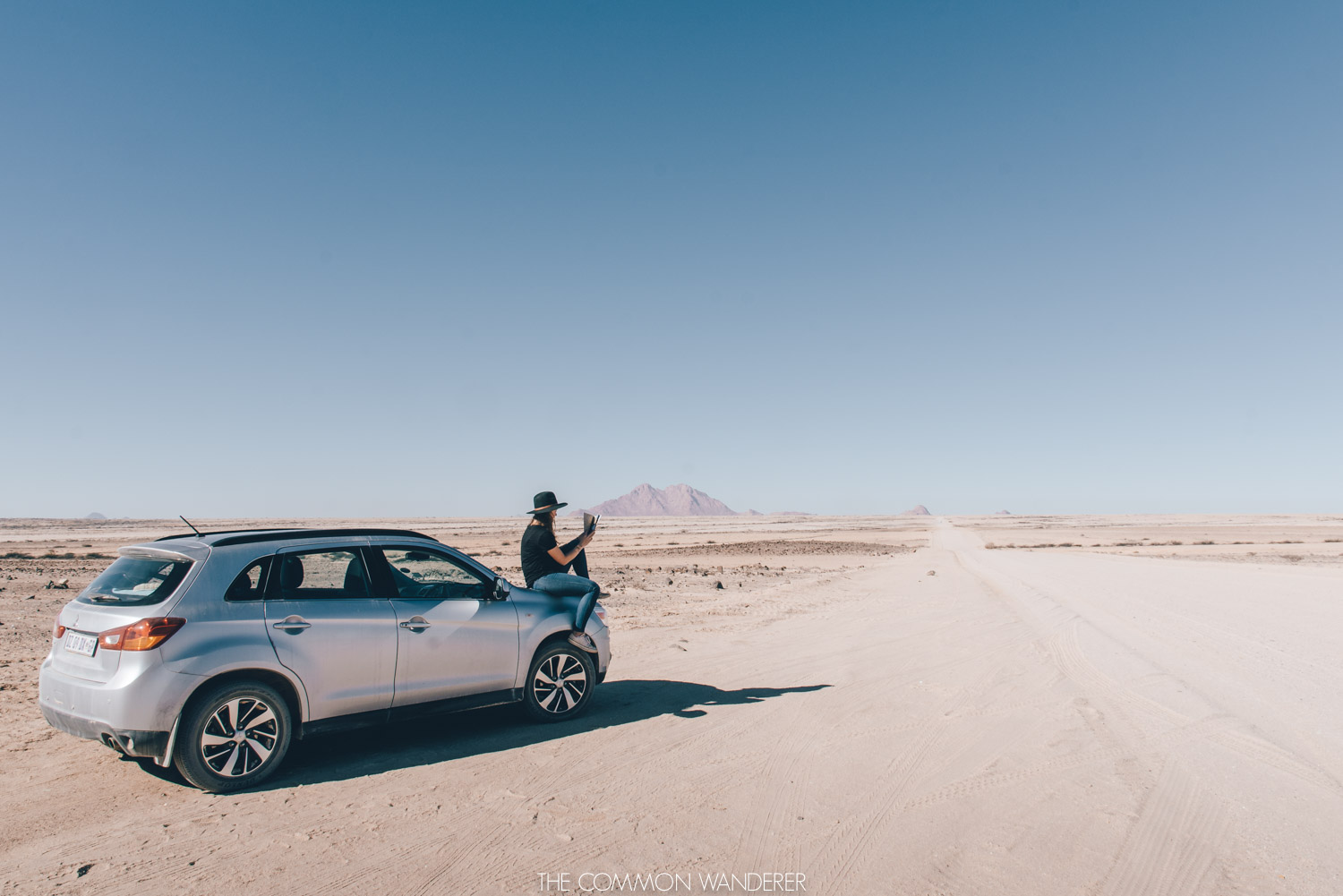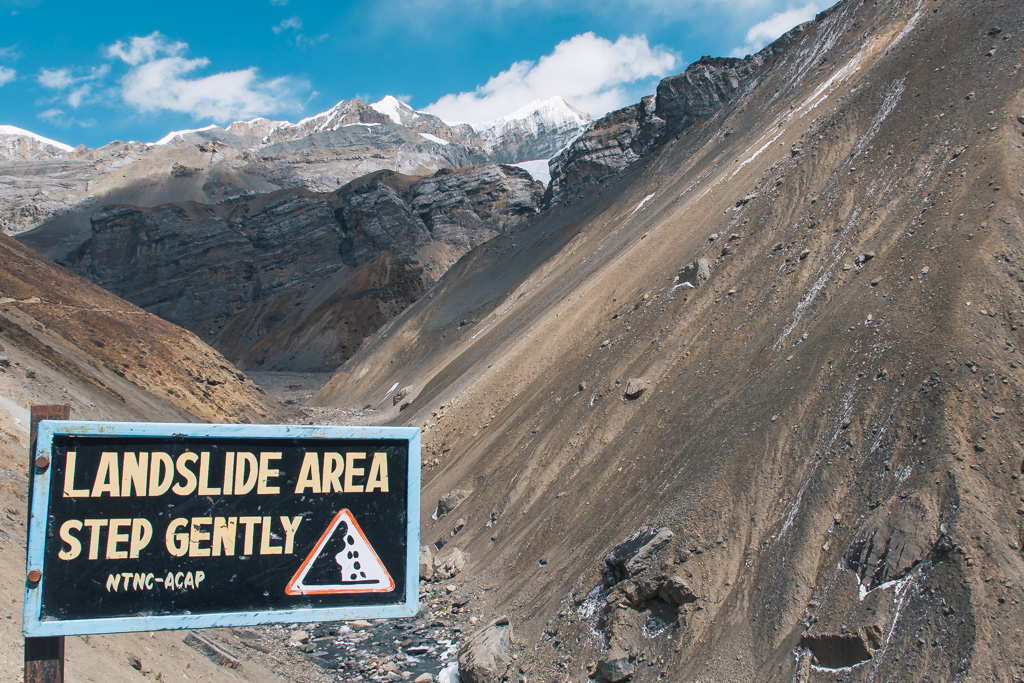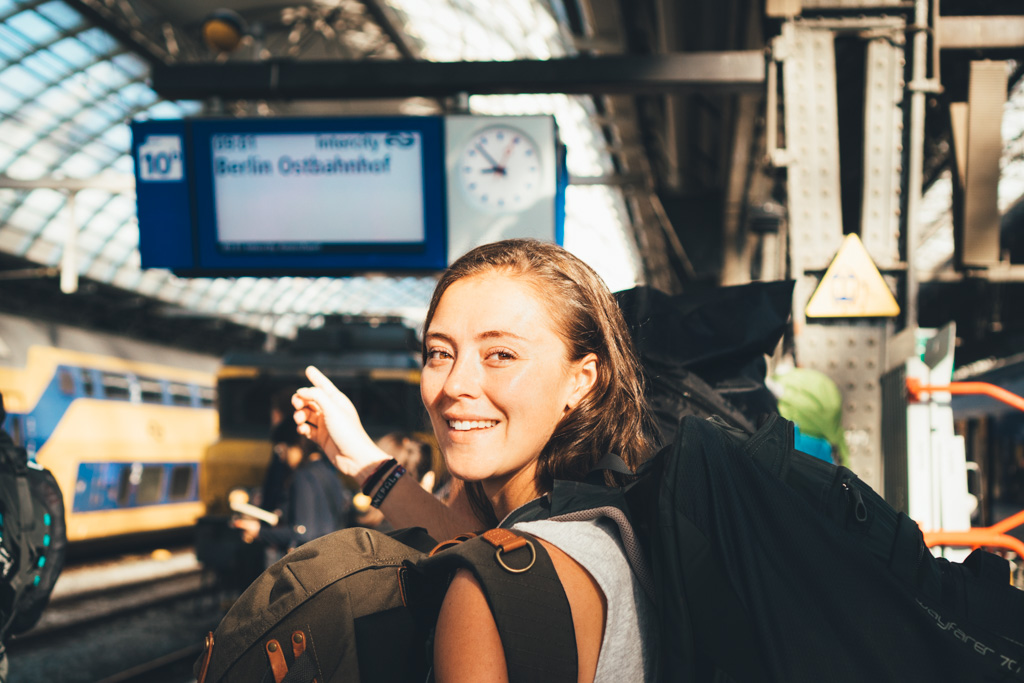Yes, you need travel insurance. Here's what you need to know
“I don’t mean to alarm you, but I've been bitten by a snake”.
This was a text Mim received from me as she was settling into a Saturday night on the couch with her sister in
Melbourne in mid-2014.
She was most certainly alarmed.
I had been travelling solo through Malawi at the time and was walking through some long grass when I felt sudden pain and pressure on my foot. Kicking out, I looked down at my foot to see two puncture wounds.
A slithering, vile serpent had stuck its fangs into my foot and left two bloody bite marks to prove it. To make matters worse, I had no idea what kind of snake it was, AND I was in the middle of nowhere.
Stumbling back to my accommodation to grab my wallet, phone, and travel insurance documents, I quickly organised a taxi to the local hospital (a loose term for a regional medical centre in Malawi). In the cab, anxiety began creeping slowly through my body, and thoughts like “I can’t die in the middle of rural Malawi” began to take over.
Back home in Melbourne, Australia, all an alarmed Mim could think of was how the hell I would get the medical treatment required, and ultimately how I'd be able to get home from rural Malawi, should there be any long-term issues.
Luckily, as with every trip we’ve ever been on, I had taken out a comprehensive travel insurance policy to safeguard against the worse case scenario. A scenario like this.
To cut a long story short, obviously I survived; the snake being nothing more than a timid grass snake protecting his turf. No medical costs were incurred and a few antibiotics later, I was back at the hostel recounting my heroic story to anyone who’d listen, while Mim slept comfortably knowing I was totally fine.
I never planned on being bitten by a snake in the middle of Malawi, but it happened. The moral of the story is this; when you travel, accidents can happen anywhere and at any time, and that’s why it’s important to cover yourself with travel insurance.
We don’t want you guys to be caught out, so we’ve put together a simplified travel insurance guide. We’re not specialists, so it’s always important to talk directly with an insurer, but this post will give you a good starting point for what you need to look for in a travel insurance policy.
EVERYTHING YOU NEED TO KNOW ABOUT TRAVEL INSURANCE
WHY YOU NEED TRAVEL INSURANCE
We’re often shocked when travellers say they don’t travel with insurance. To us, it’s as essential to travel as buying a plane ticket, backpack or accommodation. Their excuse for not having it generally revolves around the cost, which, considering the overall cost of travel insurance, is stupid. We think it’s pretty simple; if you can’t afford or can’t be bothered buying a travel insurance policy, you shouldn’t be travelling.
Why? Because not having it is dumb.
Have you heard the horror stories of someone having their camera stolen while asleep on a bus? What about someone being bitten by an animal and suffering an infection? Or the girl who cycled along Bolivia's death road, only to go flying off the edge and incur severe back injuries? If you have, you’ll realise that without travel insurance, these people would be f****d.
Travel insurance provides you with medical coverage if you get sick or injured; will reimburse you if your camera or electronics break, your flight is cancelled, if a family emergency occurs and you have to come home, or if you lose a bag, or something is stolen.
It’s an insurance policy against the inevitable issues which arise while travelling and can save your life or save you a life of severe debt.
Don’t ever leave home without travel insurance.
KEEP READING: COMMON MISTAKES TO AVOID WHEN BUYING TRAVEL INSURANCE
WHAT TO LOOK FOR IN A TRAVEL INSURANCE POLICY?
Hopefully, we're starting to convince you how vital it is to buy insurance for your next trip. If we haven’t, shame on us!
So, what do you need to look for in a travel insurance policy? It’s important to manage the cost vs cover dilemma, but with so many options out there this can be the hardest part. We’ll aim to simplify it as much as possible, but it’s really important you study the policy wording to work out whether the plan is right for you and your planned travels. If you’re unsure, speak directly to the insurer.
MEDICAL EXPENSES
For a start, we recommend looking for a plan that has high coverage on medical expenses. A good limit is $100,000, as this should be enough to cover even the most serious medical bills. If you go too low, you risk not being fully covered for serious medical emergencies.
It’s also important to look for a plan that covers emergency evacuation and care, especially if you’re visiting a volatile location where the likelihood of evacuation may be much higher than other countries (i.e. Nepal following the 2015 earthquake).
MEDICAL COVER
We’re pretty sure you don’t want to pay a large medical bill if you’re taken ill or have an accident while on holiday, so it’s important that you check exactly what your policy's medical covers are. Do they cover mountain biking accidents? Hiking in the Himalayas? Quad biking in Greece? Some policies won't cover the above activities, others will only cover you if you're travelling with a reputable provider. Always. Read. The. Fine. Print.
Experts generally recommend £2million of medical cover if you’re travelling abroad, which should include repatriation if you need to be flown back to your home. Some policies may have larger limits, however you need to ask yourself whether it’s necessary, otherwise you could be paying over the odds for insurance you don’t need.
PERSONAL LIABILITY
Personal liability is extremely important as it covers you if you injure someone, such as in a motorcycle accident, surfing or skiing, and they make a claim against you. It’s therefore very important to have cover up to £1million.
BAGGAGE AND BELONGINGS
Most, if not all policies should pay out up to £1,000+ if your luggage or personal belongings are lost, damaged or stolen.
It’s worth noting that more expensive items, such as cameras or laptops may not be covered, and you should check the ‘single item limit’ before buying insurance. If you want your expensive belongings covered, you’ll have to either increase your ‘single item limit’ to cover the extras, or get separate, specific insurance. This is very important for people who travel with a lot of equipment (like us)!
CANCELLATIONS
It’s great to be covered for cancellation of your holiday. Should the worst happen, you or a family member falls ill, or family circumstances change and you need to return home, you shouldn't have to worry about trying to recoup your money. A good limit is around £3,000, or the total cost of your trip. As always, remember to read the fine print to see what level of cover you’re afforded. For instance, you may not be covered if you’re returning home for a seriously ill friend, as they are not a direct member of the family.
DELAYS
Most insurance policies should cover you for flight delays over 12 hours. Check the policy wording to make sure.
EMERGENCY ASSISTANCE
Many insurers have 24-hour emergency helplines, which are incredibly helpful should something happen.
Overall, a great travel insurance policy (and one you should aim to get) should cover the following:
●The destinations you’re visiting (duh!)
●
Personal liability coverage to cover you if you injure someone
●
Some coverage for your electronics (and have the option for a higher coverage limit)
●
Cover injury and sudden illnesses
●
Twenty-four-hour emergency services and help
●
Cover lost, damaged or stolen possessions like baggage, documents, cameras, etc.
●
Cover cancellations such as flights, hotel bookings, and other transportation bookings if you have a sudden illness, death in the family, or some other emergency
●
Cover emergencies, strife in the country visited, etc., that cause you to head home early
●
Financial protection if any company you are using goes bankrupt and you are stuck in another country
We’re no experts, but one thing we’ve learnt over our time travelling is that it’s definitely not worth going for the cheap option when it comes to travel insurance.
When researching, check the fine print with a tooth comb, and make sure the insurance policy you ultimately choose is relevant to you and covers you for exactly what you need.
For our travel insurance needs in the past, we've used World Nomads.
FIND AN INSURANCE PLAN FOR YOUR TRIP
LIKE IT? PIN AND SHARE IT!
Disclaimer: Some of the above links are affiliate links. If you choose to purchase using the above buttons we receive a small commission at no extra cost to you. Please know that by using these affiliate links, you’re directly supporting The Common Wanderer to stay wandering. If you use our affiliate code, you’re officially a legend.













